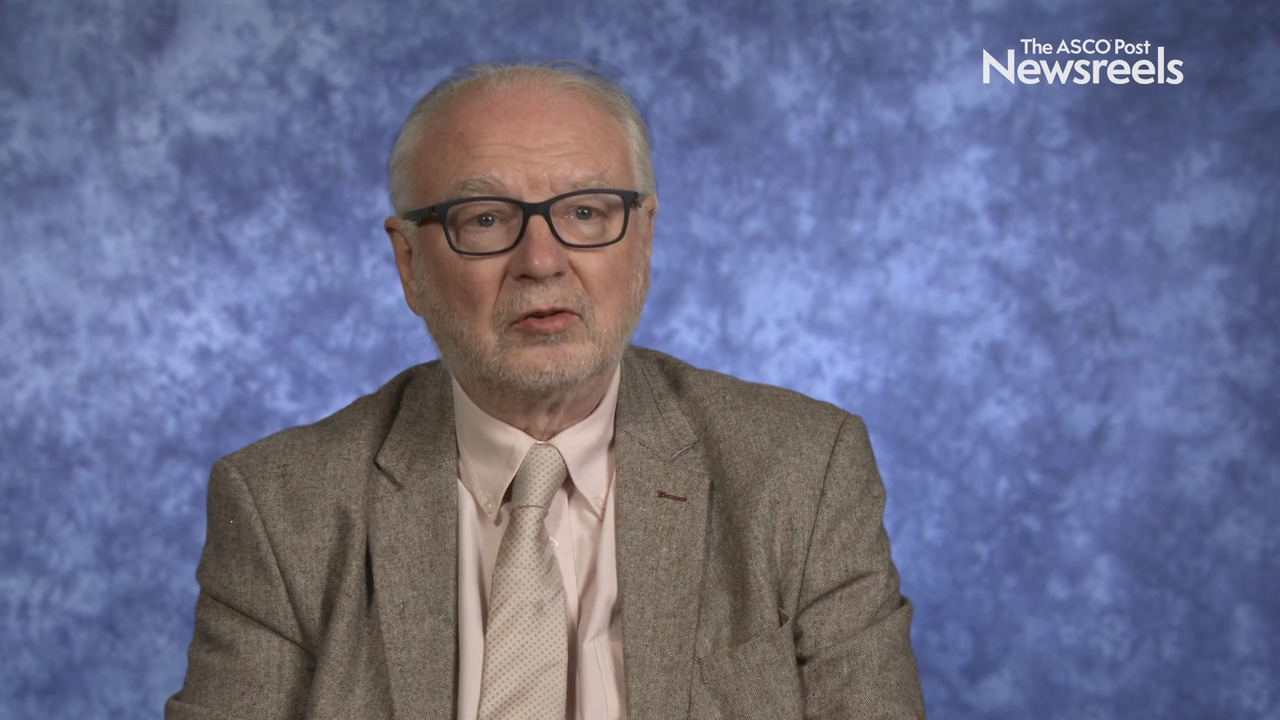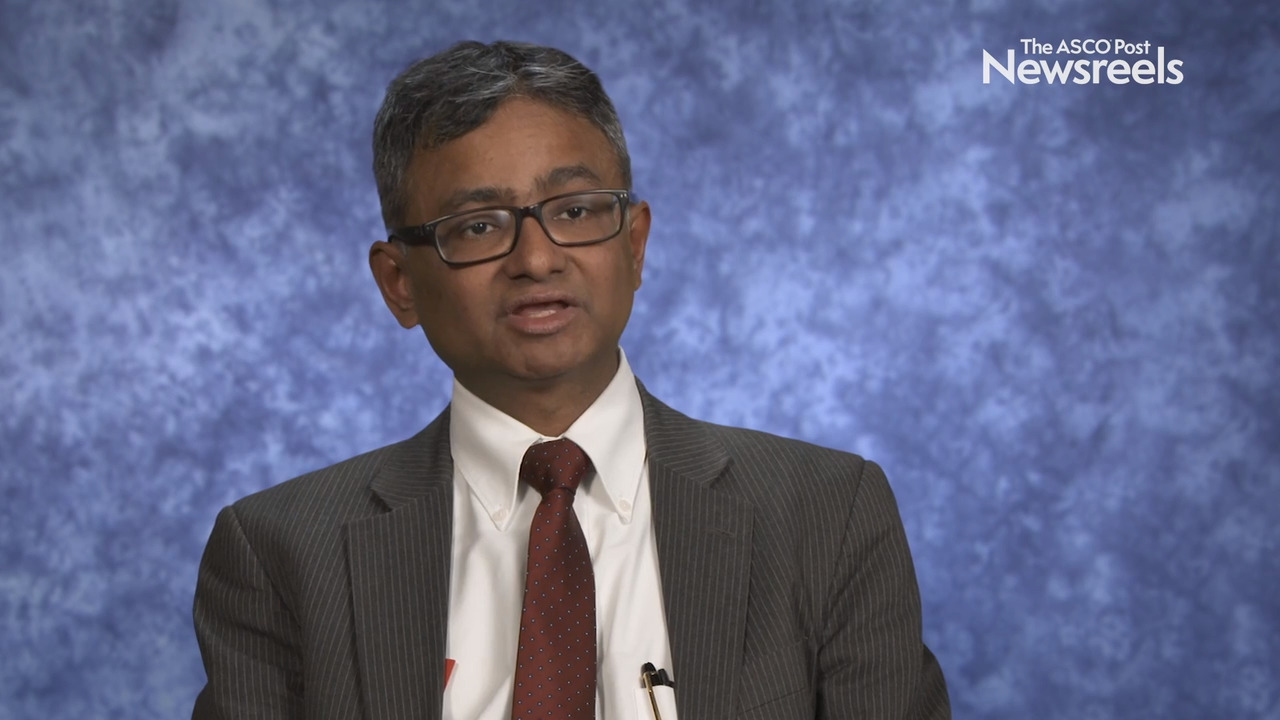Nizar M. Tannir, MD, on Nivolumab/Ipilimumab vs Sunitinib in Advanced Kidney Cancer
2020 Genitourinary Cancers Symposium
Nizar M. Tannir, MD, of The University of Texas MD Anderson Cancer Center, discusses overall survival and an independent review of response in CheckMate 214 with 42-month follow-up, using first-line nivolumab plus ipilimumab vs sunitinib in patients with advanced renal cell carcinoma (Abstract 609).
The ASCO Post Staff
Thomas Powles, MD, PhD, of Queen Mary University of London, summarizes two papers on metastatic renal cell carcinoma for which he was the discussant: nivolumab in combination with stereotactic body radiotherapy in pretreated patients, and combining dual immune checkpoint inhibition with stereotactic radiation (Abstracts 613 & 614).
The ASCO Post Staff
Nicholas D. James, PhD, MBBS, of The Institute of Cancer Research in London, discusses the health economics of adding abiraterone to first-line, long-term hormone therapy in prostate cancer, and what it means for long-term survival, quality-adjusted survival, and cost-effectiveness (Abstract 204).
The ASCO Post Staff
Nicholas D. James, PhD, MBBS, of The Institute of Cancer Research in London, discusses results from a phase I/II feasibility study that showed the combination of cetuximab, chemoradiation, fluorouracil, and mitomycin yields high bladder cancer control rates with acceptable toxicity and quality of life, meriting further evaluation in a randomized trial (Abstract 491).
The ASCO Post Staff
David P. Dearnaley, MD, of The Institute of Cancer Research and Royal Marsden NHS Foundation Trust, discusses 8-year outcomes of the phase III CHHiP trial, which showed that modest hypofractionation is noninferior to conventional fractionation in localized prostate cancer, with no increase in side effects. Disease control was also reported in patients older than age 75 (Abstract 325).
The ASCO Post Staff
Syed A. Hussain, MD, of the University of Sheffield, discusses phase II findings comparing nintedanib or placebo in combination with gemcitabine and cisplatin in locally advanced muscle-invasive bladder cancer. The data showed that adding nintedanib was safe and well tolerated, with a significant improvement in progression-free and overall survival at 1 and 2 years (Abstract 438).





